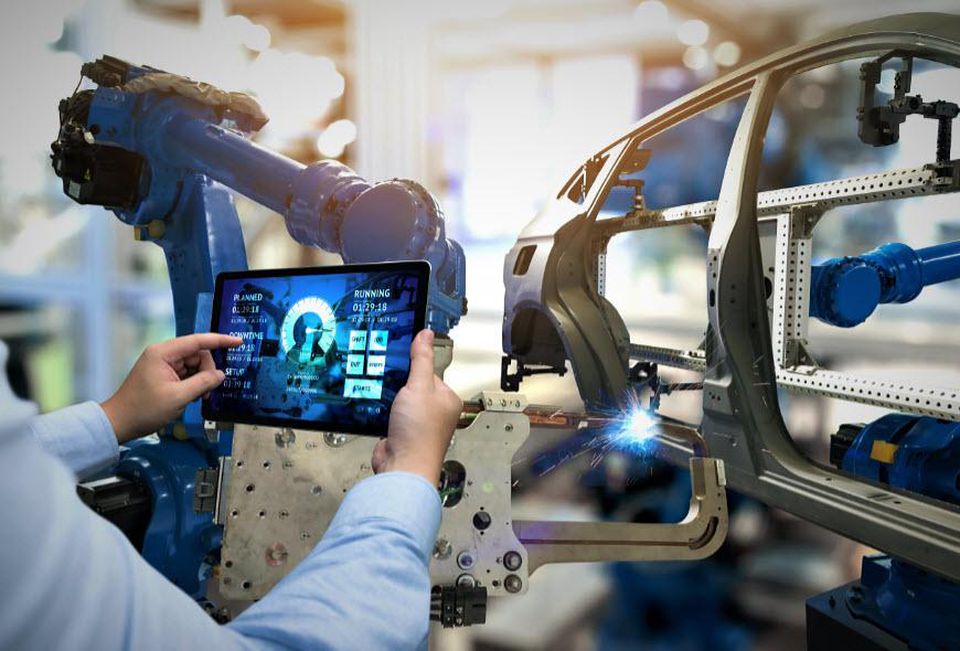In the era of Industry 4.0, characterized by the convergence of digital technologies and physical systems, smart manufacturing is revolutionizing the way goods are produced. At the heart of this transformation is artificial intelligence (AI), which plays a central role in optimizing processes, increasing efficiency, and enabling predictive maintenance. Smart manufacturing powered by AI promises to usher in a new era of productivity, agility, and innovation in the manufacturing sector.
Understanding Smart Manufacturing
Smart manufacturing involves the integration of advanced technologies, such as AI, IoT (Internet of Things), robotics, and big data analytics, to create intelligent, interconnected production systems. These systems are characterized by their ability to collect, analyze, and act upon vast amounts of data in real-time, driving automation, optimization, and agility across the manufacturing value chain.
- Predictive Maintenance: AI algorithms analyze data from sensors embedded in machinery to predict when maintenance is needed, reducing downtime and preventing costly breakdowns. By monitoring equipment performance and detecting anomalies, AI enables proactive maintenance interventions, optimizing asset utilization and extending equipment lifespan.
- Quality Control and Assurance: AI-powered computer vision systems inspect products on the production line for defects, ensuring adherence to quality standards. Machine learning algorithms learn from past inspection data to improve accuracy and reliability over time. This automated quality control process minimizes errors, reduces waste, and enhances product consistency.
- Supply Chain Optimization: AI optimizes supply chain operations by analyzing data from various sources, including suppliers, logistics providers, and market demand. By predicting demand, optimizing inventory levels, and identifying potential disruptions, AI enables more efficient procurement, production scheduling, and distribution, reducing costs and improving responsiveness.
- Process Optimization: AI algorithms optimize manufacturing processes by analyzing data from sensors and production systems to identify inefficiencies and bottlenecks. By continuously monitoring and adjusting parameters, AI improves throughput, reduces cycle times, and maximizes resource utilization. This optimization enhances overall efficiency and productivity.
The Role of AI in Industry 4.0
AI serves as the backbone of Industry 4.0, enabling smart manufacturing systems to make data-driven decisions and adapt to changing conditions in real-time. Its ability to analyze large volumes of data, identify patterns, and learn from experience makes AI indispensable in achieving the goals of Industry 4.0.
- Cognitive Automation: AI enables cognitive automation, where machines can perform complex tasks that traditionally required human intelligence. This includes decision-making, problem-solving, and pattern recognition. Cognitive automation enhances the flexibility and agility of manufacturing processes, enabling rapid adaptation to changing customer demands and market conditions.
- Advanced Analytics: AI-powered analytics provide deeper insights into manufacturing operations, enabling continuous improvement and innovation. Machine learning algorithms analyze historical data to identify trends, predict future outcomes, and optimize processes. This data-driven approach allows manufacturers to identify opportunities for efficiency gains, cost reductions, and quality improvements.
- Human-Machine Collaboration: AI facilitates human-machine collaboration in smart manufacturing environments, where humans and machines work together seamlessly to achieve common goals. Collaborative robots, or cobots, equipped with AI capabilities, can assist human workers in repetitive or dangerous tasks, improving safety and productivity. AI also enhances decision support systems, providing real-time guidance to human operators based on analysis of complex data.
- Adaptive Manufacturing: AI enables adaptive manufacturing, where production systems can dynamically adjust their operations based on real-time feedback and changing requirements. By integrating AI with IoT sensors and actuators, manufacturing systems can autonomously respond to fluctuations in demand, resource availability, and market conditions. This agility enables manufacturers to quickly adapt to disruptions and seize opportunities.
Case Studies: AI in Smart Manufacturing
Siemens: Siemens employs AI in its manufacturing operations to optimize production processes and improve product quality. The company’s AI-driven systems monitor equipment performance, analyze production data, and provide real-time insights to operators. This enables Siemens to achieve higher efficiency, reduce costs, and enhance customer satisfaction.
Toyota: Toyota utilizes AI in its factories to optimize assembly line operations and improve vehicle quality. The company’s AI-driven systems analyze production data to identify potential defects and recommend corrective actions. This proactive approach helps Toyota maintain its reputation for manufacturing excellence and customer satisfaction.
Foxconn: Foxconn, a leading electronics manufacturer, uses AI to enhance its manufacturing processes and supply chain operations. The company’s AI-driven systems optimize production scheduling, inventory management, and logistics, reducing costs and improving efficiency. Foxconn’s adoption of AI has enabled it to remain competitive in the fast-paced electronics industry.
Challenges and Considerations
While AI offers significant benefits for smart manufacturing, there are challenges that companies must address:
- Data Quality and Security: AI relies on high-quality data for training and decision-making. Ensuring the accuracy, integrity, and security of manufacturing data is essential to prevent errors and protect against cyber threats.
- Skills Gap: Implementing AI in manufacturing requires specialized skills in data science, machine learning, and robotics. Companies need to invest in training and development programs to build a workforce capable of leveraging AI effectively.
- Interoperability: Integrating AI with existing manufacturing systems and equipment can be challenging due to interoperability issues. Companies must ensure that their AI solutions can seamlessly integrate with legacy systems and communicate effectively with other devices and platforms.
- Ethical and Social Implications: The widespread adoption of AI in manufacturing raises ethical and social implications, including concerns about job displacement, privacy, and algorithmic bias. Companies must consider these implications and implement policies and practices to address them responsibly.
Conclusion
AI is driving a paradigm shift in smart manufacturing, enabling companies to achieve unprecedented levels of efficiency, agility, and innovation. By harnessing the power of AI, manufacturers can optimize processes, improve product quality, and respond quickly to changing market dynamics. However, realizing the full potential of AI in smart manufacturing requires addressing challenges related to data quality, skills development, interoperability, and ethical considerations. As AI technology continues to advance, its role in shaping the future of manufacturing will only become more prominent, paving the way for a new era of productivity and competitiveness in Industry 4.0.




